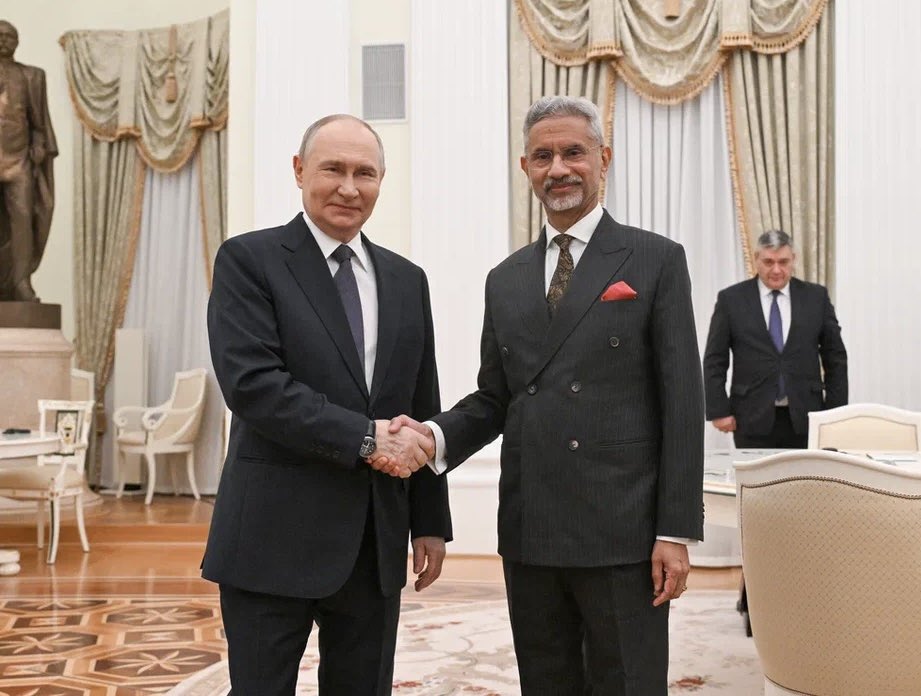Jaishankar Meets Putin: India Demands Reform, Flexibility, and Zero Tolerance on Terrorism at SCO Summit in Moscow
At the Shanghai Cooperation Organization (SCO) Council of Heads of Government meeting in Moscow, Indian External Affairs Minister Dr. S. Jaishankar delivered a sharply focused address and called for urgent structural reforms in the SCO, firm action against terrorism, and deeper economic and cultural integration across the bloc.
Jaishankar began by warning of an increasingly volatile global economy, where “supply-side risks have been aggravated by demand-side complexities,” demanding urgent “de-risking and diversification.”
 |
| Indian EAM Jaishankar Meets Russian Prez Putin, again! |
On modernization of the SCO, Jaishankar issued a pointed reminder: “As the organization becomes more diverse, the SCO must be more flexible and adaptable.”
He urged the immediate adoption of English as an official language of the organization, which is a long-stalled move he said must now be “prioritized.”
India also threw weight behind strengthening cultural diplomacy, citing initiatives like the SCO Civilizational Dialogue Forum and recent expositions of sacred Buddhist relics. Jaishankar highlighted the “core role of people-to-people exchanges” in building durable ties, from youth forums to startup collaborations.
In a firm and unambiguous section on terrorism, Jaishankar invoked the SCO’s founding purpose — to combat terrorism, separatism, and extremism.
“There can be no justification, no looking away, and no whitewashing,” he declared. “India has demonstrated that we have the right to defend our people and will exercise it.”
Addressing climate, pandemic, and disaster challenges, Jaishankar pointed to India’s delivery of vaccines, cancer treatment equipment, and immediate relief during recent earthquakes in Afghanistan.
He urged members to engage with India’s Coalition for Disaster Resilient Infrastructure (CDRI) as a proactive step toward preparedness.
India’s pitch at the SCO meeting comes as preparations intensify for President Vladimir Putin’s scheduled visit to India in December. Earlier in Moscow, Jaishankar met with Russian President Vladimir Putin and Foreign Minister Sergey Lavrov to review strategic priorities and finalize upcoming bilateral agreements.
Jaishankar noted that this was his sixth interaction with Lavrov in 2025 alone, underlining the frequency and strategic nature of India-Russia consultations.
He also reaffirmed India-Russia ties as “a factor of stability in international relations,” a phrase echoed across his Moscow engagements.
The Indian delegation reiterated support for multilateralism, reforms in global governance, and a multipolar world order, positions shared with Russia amid growing geopolitical flux.
Discussions also included proposals for expanding energy cooperation, connectivity, and trade mechanisms, especially in light of Western sanctions.
“The SCO must reflect contemporary changes through fresh thinking and new collaborations,” Jaishankar said, in what can be seen as a bid to position India as an assertive driver of reform and innovation within the organization.
